


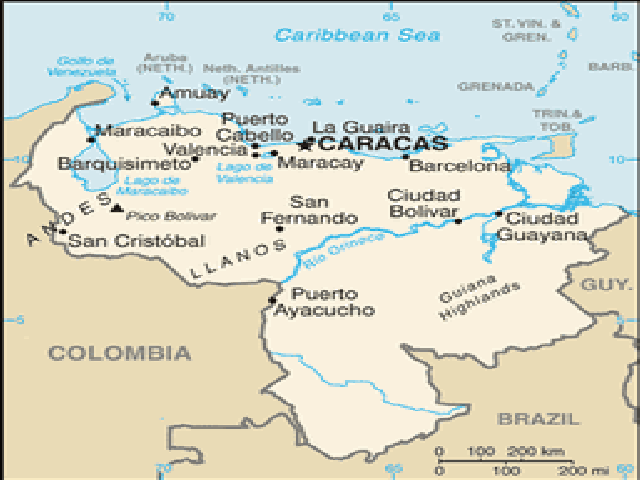 Venezuela
borders
Guyana to the east,
Brazil to the south, and
Colombia to the
west. Trinidad and Tobago, Grenada,
St. Lucia,
Barbados,
Curaçao,
Bonaire,
Aruba,
Saint Vincent and the Grenadines and the
Leeward Antilles lie just north, off the Venezuelan
coast. Its size is 916,445 km² with an estimated population of 26,414,816. Its
capital is
Caracas. The colors of the Venezuelan flag are yellow,
blue and red, in that order: the yellow stands for land wealth, the blue for the
sea and sky of the country, and the red for the blood shed by the heroes of
independence.
Venezuela
borders
Guyana to the east,
Brazil to the south, and
Colombia to the
west. Trinidad and Tobago, Grenada,
St. Lucia,
Barbados,
Curaçao,
Bonaire,
Aruba,
Saint Vincent and the Grenadines and the
Leeward Antilles lie just north, off the Venezuelan
coast. Its size is 916,445 km² with an estimated population of 26,414,816. Its
capital is
Caracas. The colors of the Venezuelan flag are yellow,
blue and red, in that order: the yellow stands for land wealth, the blue for the
sea and sky of the country, and the red for the blood shed by the heroes of
independence.
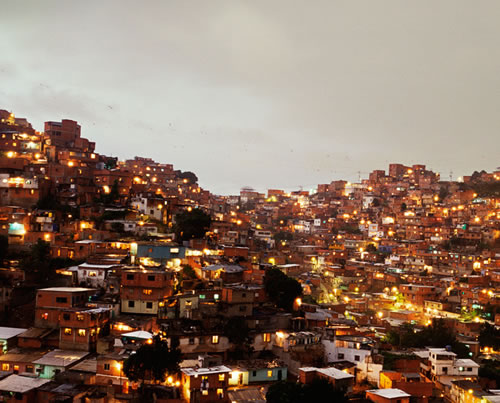 We
are so glad we got to visit Venezuela before Hugo Chavez became
We
are so glad we got to visit Venezuela before Hugo Chavez became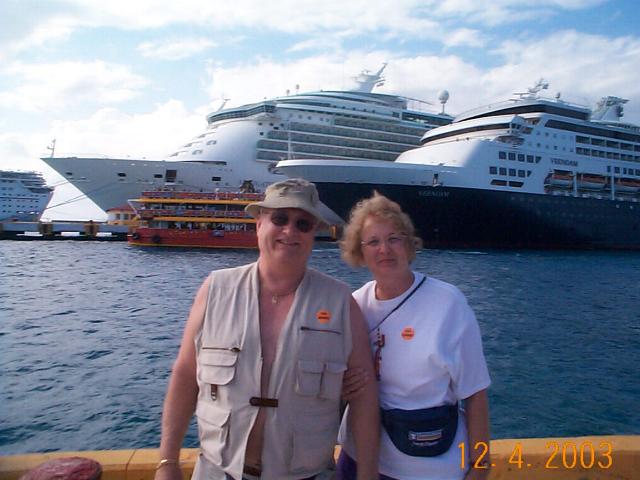 it's president.
When we landed at the port (photo right) and started the climb to Venezuela's capital Caracas,
one is struck by the abject poverty as evidenced by the proliferation of barrios
as seen when you start your decent into the city of Caracas (left ).
it's president.
When we landed at the port (photo right) and started the climb to Venezuela's capital Caracas,
one is struck by the abject poverty as evidenced by the proliferation of barrios
as seen when you start your decent into the city of Caracas (left ).
Safe areas: Los Ruices, Sebucan, Los Dos Caminos, Palos Grandes, Parque del Este, Chacao, Altamira, Chacaito, La California, Bello Monte, Colinas de Bello Monte, Los Chaguaramos, Sta Monica, etc...To be avoided: Downtown and west of the city, from Plaza Venezuela metro station to the west, and the far east of the city, Palo Verde, Petare, etc.. Murders: 8,022 (2000) (per capita): 32 per 100,000 people. This give you an idea of how dangerous a place Caracas has become.
There are two classes of
people; the rich and the poor. There was no middle class that we saw.
The rich live in protected areas in neighborhood much like any middle class
neighborhood in the USA. The poor (and there are LOT'S of people who fit
that description live in tight, cramped, squalid barrios that are ubiquitous in
Caracas. You will see them when you are flying in. You will see them as
you are driving around town. From a distance they look cute and even beautiful
at night but stay away from the ranchitos. They appear as clay huts all over the
mountains and hills. If you travel into these areas you will more than likely
leave, penniless and naked. That is, if you leave at all.
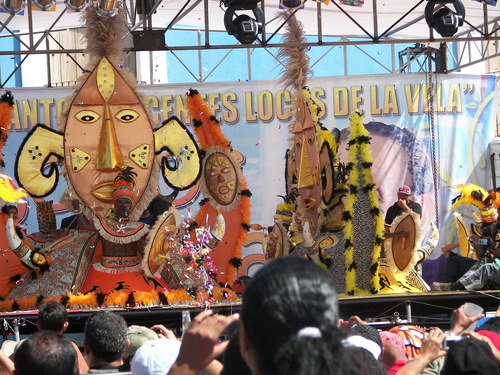
Festivals abound and are always colorful (right) but again, be careful if you decide to attend one. We decided to take a tour into the mountains surrounding Caracas. It was to a German village high in the mountains and it was very interesting. It's strange to see Bavarian style homes and businesses with German names and German menus in the middle of the jungle.
Colonia Tovar,
(below, left and right) a German settlement town located 40 miles (65km) to the west of
Caracas and in the mountains - beautiful!!
Our tour took us into the forest and up the steep mountainside. The
village was founded in 1841 by Don Martin Tovar, a Venezuelan congressman that
enforced the treaty with European immigrants from Tyrol and West Germany among
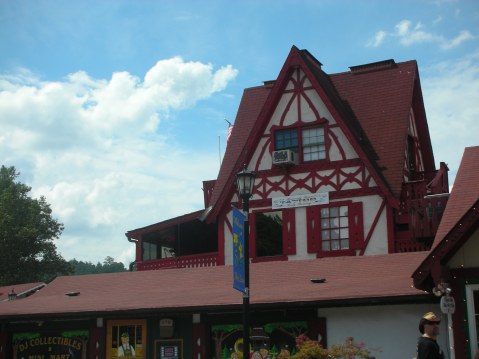 others.
Colonia Tovar was described by Isabel Allende in her novel,
others.
Colonia Tovar was described by Isabel Allende in her novel, EVA LUNA as: 'A
picturesque German Village of white houses with timbers and red roofs surrounded
by flower gardens, carefully tended fields and creeks with water mills. German
cooking and German atmosphere. A cold beer or a freshly made fruit juice,
followed by sausages and sauerkraut and a big piece of black forest cake
listening to some Bavarian music.'
EVA LUNA as: 'A
picturesque German Village of white houses with timbers and red roofs surrounded
by flower gardens, carefully tended fields and creeks with water mills. German
cooking and German atmosphere. A cold beer or a freshly made fruit juice,
followed by sausages and sauerkraut and a big piece of black forest cake
listening to some Bavarian music.'
And so it was! It was everything Sabel Allende said and more...
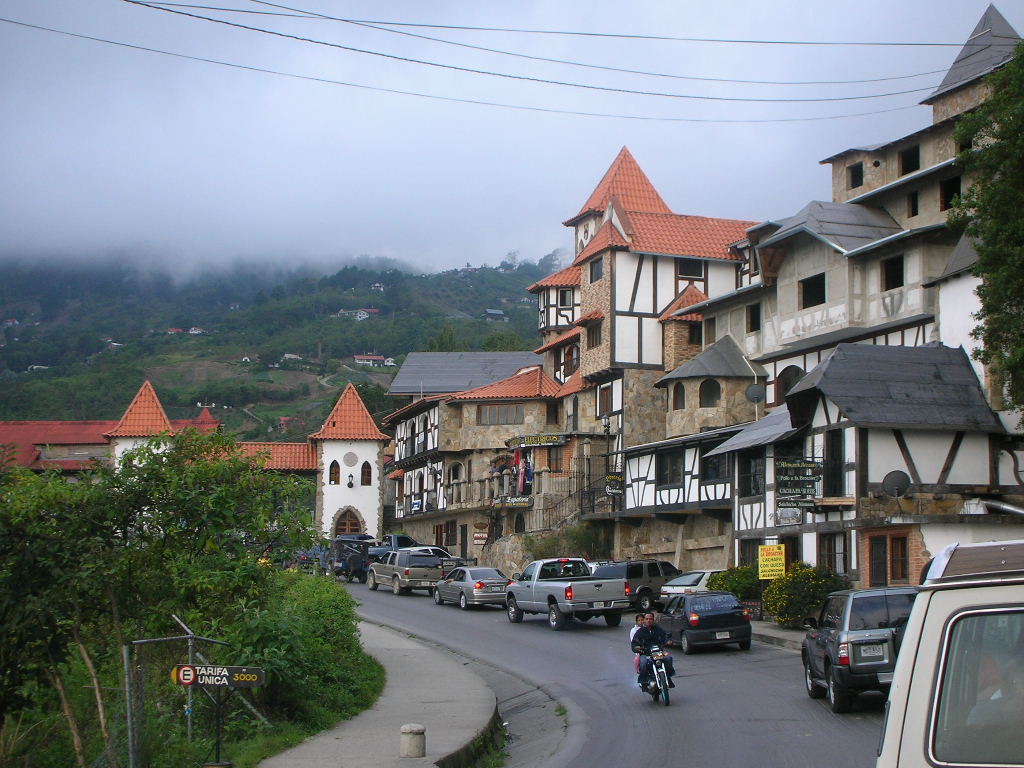
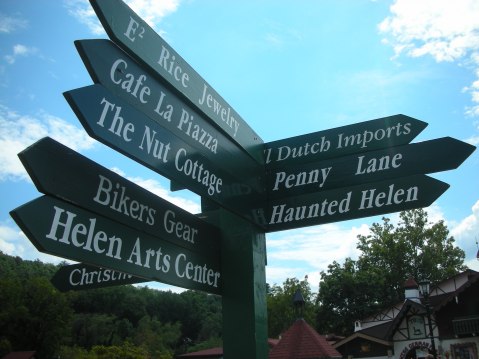
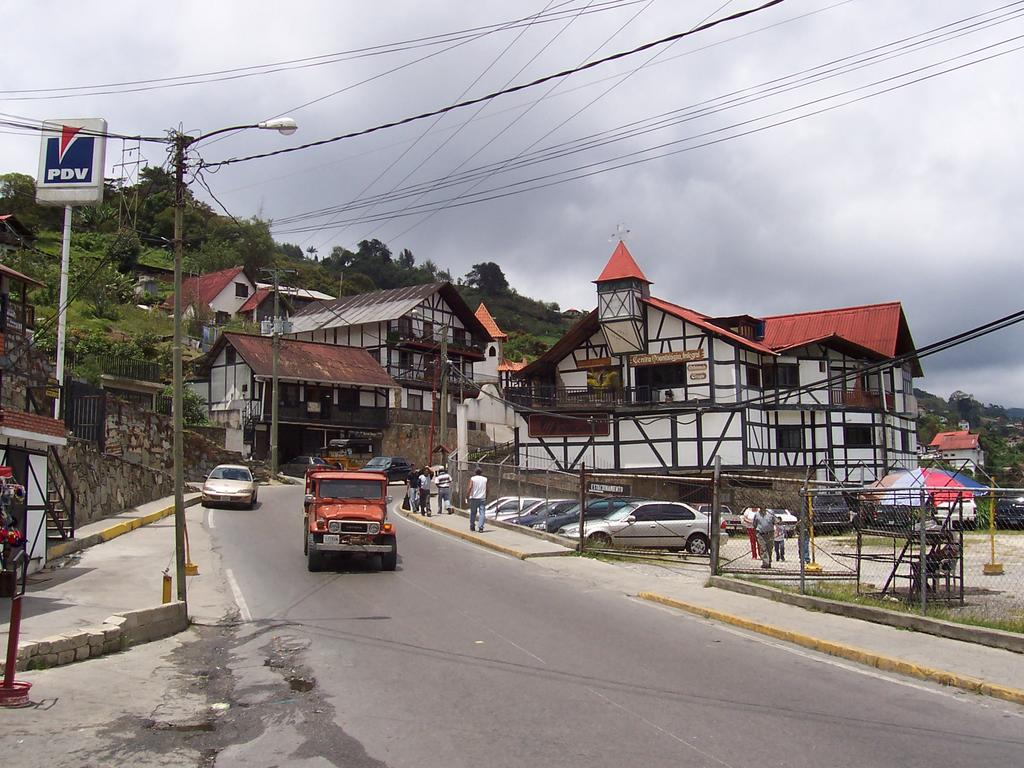
Hugo Chávez was elected president in December
1998 and took office in February 1999. His economic policies have been more
socialistic than those of his predecessors. He did
consider implementing
Rhenish capitalism in Venezuela, however he decided
not to. In the first four years of
the Chávez presidency, the economy contracted, at first because of low oil
prices, then because of the turmoil caused by the 2002 coup attempt and the
2002-2003 business strike. Since 2003, the
Venezuelan government has set
price controls on around 400 basic foods in an effort
according to the Washington Post, to "counter inflation and protect the poor."
However it is reported that these price controls have caused "sporadic food
shortages" due to the regulated prices not keeping
pace with inflation so that producers are faced with either selling their goods
at 30-60% above the regulated price, or with
hoarding in hope of government action to revise
regulated prices upwards.
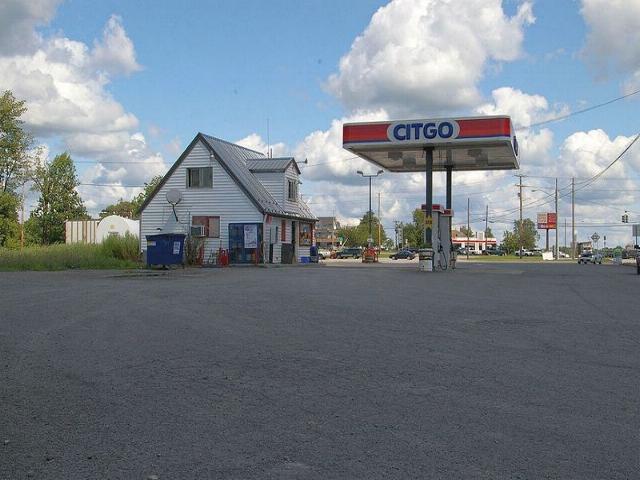 The
drastic measures have also caused problems with
smuggling, with products being bought
at regulated prices in Venezuela and smuggled across the border into Colombia,
and that brings me to CITGO Petroleum
Corporation (or CITGO) is a
United States-incorporated,
Venezuela-owned by PDV America, Inc.
The
drastic measures have also caused problems with
smuggling, with products being bought
at regulated prices in Venezuela and smuggled across the border into Colombia,
and that brings me to CITGO Petroleum
Corporation (or CITGO) is a
United States-incorporated,
Venezuela-owned by PDV America, Inc.
I, personally, will NOT but any products from CITGO. I don't approve of Hugo Chávez or any of his communist or socialistic policies or attacks on the United States government. There is absolutely NO way we would ever visit Venezuela again until the rampant crime and this political environment changes.
As I said in the
beginning, we are glad that we visited Venezuela when we did.




